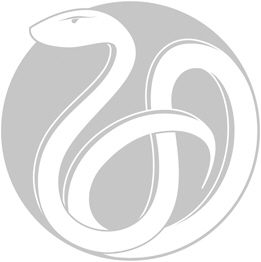HUNGER AND OBESITY
Understanding a Food Insecurity Paradigm
WORKSHOP SUMMARY
Lisa M. Troy, Emily Ann Miller, and Steve Olson, Rapporteurs
INSTITUTE OF MEDICINE
OF THE NATIONAL ACADEMIES
THE NATIONAL ACADEMIES PRESS
Washington, D.C.
www.nap.edu
THE NATIONAL ACADEMIES PRESS
500 Fifth Street, N.W.
Washington, DC 20001
NOTICE: The project that is the subject of this report was approved by the Governing Board of the National Research Council, whose members are drawn from the councils of the National Academy of Sciences, the National Academy of Engineering, and the Institute of Medicine.
This study was supported by Contract No. AG-3198-C-10-0009 between the National Academy of Sciences and the U.S. Department of Agriculture. Any opinions, findings, conclusions, or recommendations expressed in this publication are those of the author(s) and do not necessarily reflect the view of the organizations or agencies that provided support for this project.
International Standard Book Number-13: 978-0-309-18742-8
International Standard Book Number-10: 0-309-18742-7
Additional copies of this report are available from the
National Academies Press,
500 Fifth Street, N.W., Lockbox 285, Washington, DC 20055; (800) 624-6242 or (202) 334-3313 (in the Washington metropolitan area); Internet, http://www.nap.edu.
For more information about the Institute of Medicine, visit the IOM home page at: www.iom.edu.
Copyright 2011 by the National Academy of Sciences. All rights reserved.
Printed in the United States of America
The serpent has been a symbol of long life, healing, and knowledge among almost all cultures and religions since the beginning of recorded history. The serpent adopted as a logotype by the Institute of Medicine is a relief carving from ancient Greece, now held by the Staatliche Museen in Berlin.
Suggested citation: IOM (Institute of Medicine). 2011. Hunger and Obesity: Understanding a Food Insecurity Paradigm: Workshop Summary. Washington, DC: The National Academies Press.
THE NATIONAL ACADEMIES
Advisers to the Nation on Science, Engineering, and Medicine
The National Academy of Sciences is a private, nonprofit, self-perpetuating society of distinguished scholars engaged in scientific and engineering research, dedicated to the furtherance of science and technology and to their use for the general welfare. Upon the authority of the charter granted to it by the Congress in 1863, the Academy has a mandate that requires it to advise the federal government on scientific and technical matters. Dr. Ralph J. Cicerone is president of the National Academy of Sciences.
The National Academy of Engineering was established in 1964, under the charter of the National Academy of Sciences, as a parallel organization of outstanding engineers. It is autonomous in its administration and in the selection of its members, sharing with the National Academy of Sciences the responsibility for advising the federal government. The National Academy of Engineering also sponsors engineering programs aimed at meeting national needs, encourages education and research, and recognizes the superior achievements of engineers. Dr. Charles M. Vest is president of the National Academy of Engineering.
The Institute of Medicine was established in 1970 by the National Academy of Sciences to secure the services of eminent members of appropriate professions in the examination of policy matters pertaining to the health of the public. The Institute acts under the responsibility given to the National Academy of Sciences by its congressional charter to be an adviser to the federal government and, upon its own initiative, to identify issues of medical care, research, and education. Dr. Harvey V. Fineberg is president of the Institute of Medicine.
The National Research Council was organized by the National Academy of Sciences in 1916 to associate the broad community of science and technology with the Academy’s purposes of furthering knowledge and advising the federal government. Functioning in accordance with general policies determined by the Academy, the Council has become the principal operating agency of both the National Academy of Sciences and the National Academy of Engineering in providing services to the government, the public, and the scientific and engineering communities. The Council is administered jointly by both Academies and the Institute of Medicine. Dr. Ralph J. Cicerone and Dr. Charles M. Vest are chair and vice chair, respectively, of the National Research Council.
PLANNING COMMITTEE ON UNDERSTANDING THE RELATIONSHIP BETWEEN FOOD INSECURITY AND OBESITY: A WORKSHOP1
PATRICIA B. CRAWFORD (Chair),
University of California, Berkeley
KATHERINE ALAIMO,
Michigan State University, East Lansing
MARIANA CHILTON,
Drexel University School of Public Health, Philadelphia, Pennsylvania
ADAM DREWNOWSKI,
University of Washington, Seattle
EDWARD FRONGILLO,
University of South Carolina, Columbia
CHRISTINE OLSON,
Cornell University, Ithaca, New York
MARY STORY,
University of Minnesota, Minneapolis
AMY YAROCH,
The Center for Human Nutrition, Omaha, Nebraska
Study Staff
LISA M. TROY, Study Director
EMILY ANN MILLER, Research Associate
SAMANTHA ROBOTHAM, Senior Program Assistant
ANTON L. BANDY, Financial Officer
GERALDINE KENNEDO, Administrative Assistant
LINDA D. MEYERS, Director,
Food and Nutrition Board
Reviewers
This report has been reviewed in draft form by individuals chosen for their diverse perspectives and technical expertise, in accordance with procedures approved by the National Research Council’s Report Review Committee. The purpose of this independent review is to provide candid and critical comments that will assist the institution in making its published report as sound as possible and to ensure that the report meets institutional standards for objectivity, evidence, and responsiveness to the study charge. The review comments and draft manuscript remain confidential to protect the integrity of the process. We wish to thank the following individuals for their review of this report:
Ronette Briefel, Mathematica Policy Research, Inc.
Patricia B. Crawford, University of California, Berkeley
Lucia L. Kaiser, University of California, Davis
Nicolas Stettler, Children’s Hospital of Philadelphia
Although the reviewers listed above have provided many constructive comments and suggestions, they were not asked to endorse the final draft of the report before its release. The review of this report was overseen by Hugh H. Tilson. Appointed by the Institute of Medicine, he was responsible for making certain that an independent examination of this report was carried out in accordance with institutional procedures and that all review comments were carefully considered. Responsibility for the final content of this report rests entirely with the rapporteurs and the institution.











